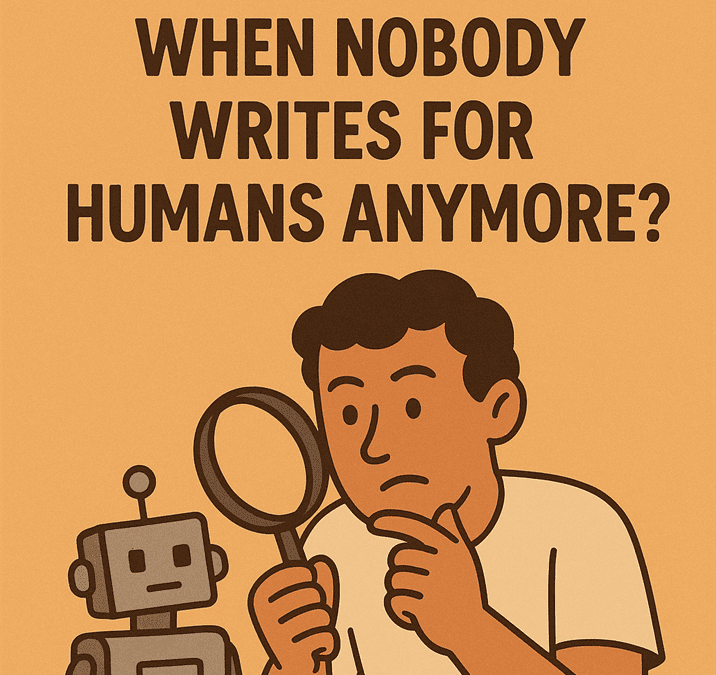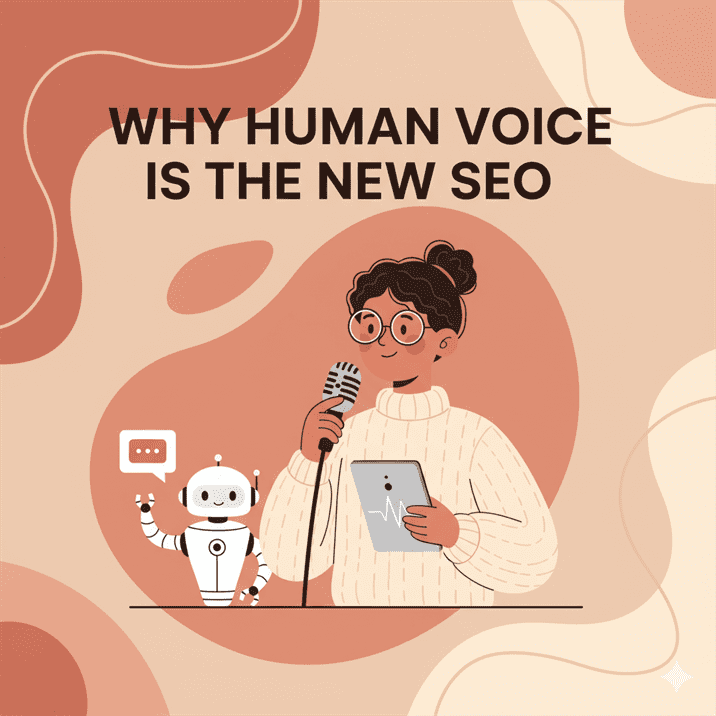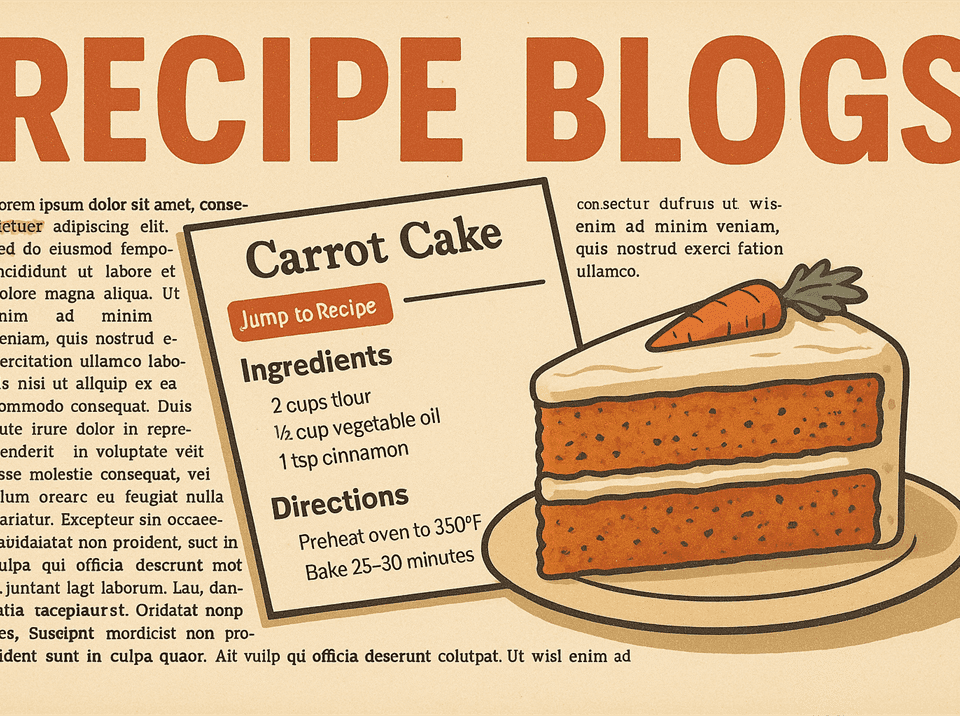What happens to the web when nobody writes for humans anymore?

Let’s play a quick thought experiment: Imagine you click on an article titled “10 Best Pasta Recipes You Must Try in 2025.”
You arrive expecting sauce. Comfort. Maybe a cute anecdote about Nonna.
Instead, you get… paragraphs clearly engineered for Google’s appetite, stuffed with words like “pasta future,” “AI content future,” and “cultural impact of AI writing.” (Yes, I just used my own keywords in a sentence.
Look at me, gaming the system like a slightly tipsy SEO intern.)
It’s readable, technically. But human? Not so much.
And that’s the risk of where we’re heading, a web optimised for algorithms, not people.
The risk of algorithm-optimised, reader-ignored content
Picture a world where every sentence is written for a robot’s approval rating.
Headlines sound like riddles written by accountants. Paragraphs are bloated with synonyms nobody asked for.
And every blog post begins with “In today’s fast-paced digital environment…” (a phrase I’d personally outlaw if given the power of a benevolent dictator).
The danger here isn’t just boredom. It’s that we slowly forget what writing is supposed to do, connect, entertain, teach, occasionally make you snort coffee through your nose.
Long-term effects on culture, knowledge, and creativity
If the future of AI content is just machine-optimised noise, what happens to our shared culture?
Knowledge doesn’t grow, it calcifies. Creativity doesn’t spread, it standardises.
It’s like a giant library where every book is written in the same polite, vaguely corporate voice, and the only thing you learn is how to escape the library without falling asleep.
Remember when blogs felt like people? When you’d stumble onto a site and think, “Ah, this is a weirdo after my own heart”?
Lose that, and the web becomes less like a bazaar of ideas and more like an airport lounge.
Clean. Efficient. Soulless. And full of bad sandwiches.
Potential counter-movements: Human-first publishing, curated content platforms
Here’s the hopeful bit. People tend to rebel against blandness. It’s cultural physics.
If everything turns into flavourless porridge, someone out there will start serving bacon sandwiches.
We’ll see more human-first publishing movements, more curated platforms where readers know actual people are behind the words.
Think newsletters, indie mags, even blogs (yes, blogs, those dinosaurs still have teeth).
And let’s be honest, you’re reading this right now not because Google forced you here, but because you wanted a break from machine-scented copy.
Congratulations, you’re part of the resistance.
How readers and creators can keep the web human
- Readers: Reward the good stuff. Share posts that make you laugh or teach you something real. Comment, subscribe, or send the writer a virtual fist bump.
- Creators: Keep showing up with personality. Write like you’re talking to a friend, not like you’re applying for a grant. Leave in the weird analogies. Confess when you don’t know everything. That’s the good juice.
If you’re a writer, here’s a radical idea. Next time you’re tempted to smooth out all the quirks in your draft, don’t.
Let the odd metaphor live. (Yes, even the one about pasta libraries. Especially that one.)
Call to action (because even rebels need them)
If you’ve read this far, you’re clearly on Team Human. So let’s make a pact, keep reading, keep writing, and keep reminding the web that words aren’t just for algorithms.
Keep coming back if you want more posts like this, equal parts rant, metaphor, and goose noises, and we’ll keep this corner of the internet a little more human together.
If you want real posts for real people on your own site, you know where to come.



